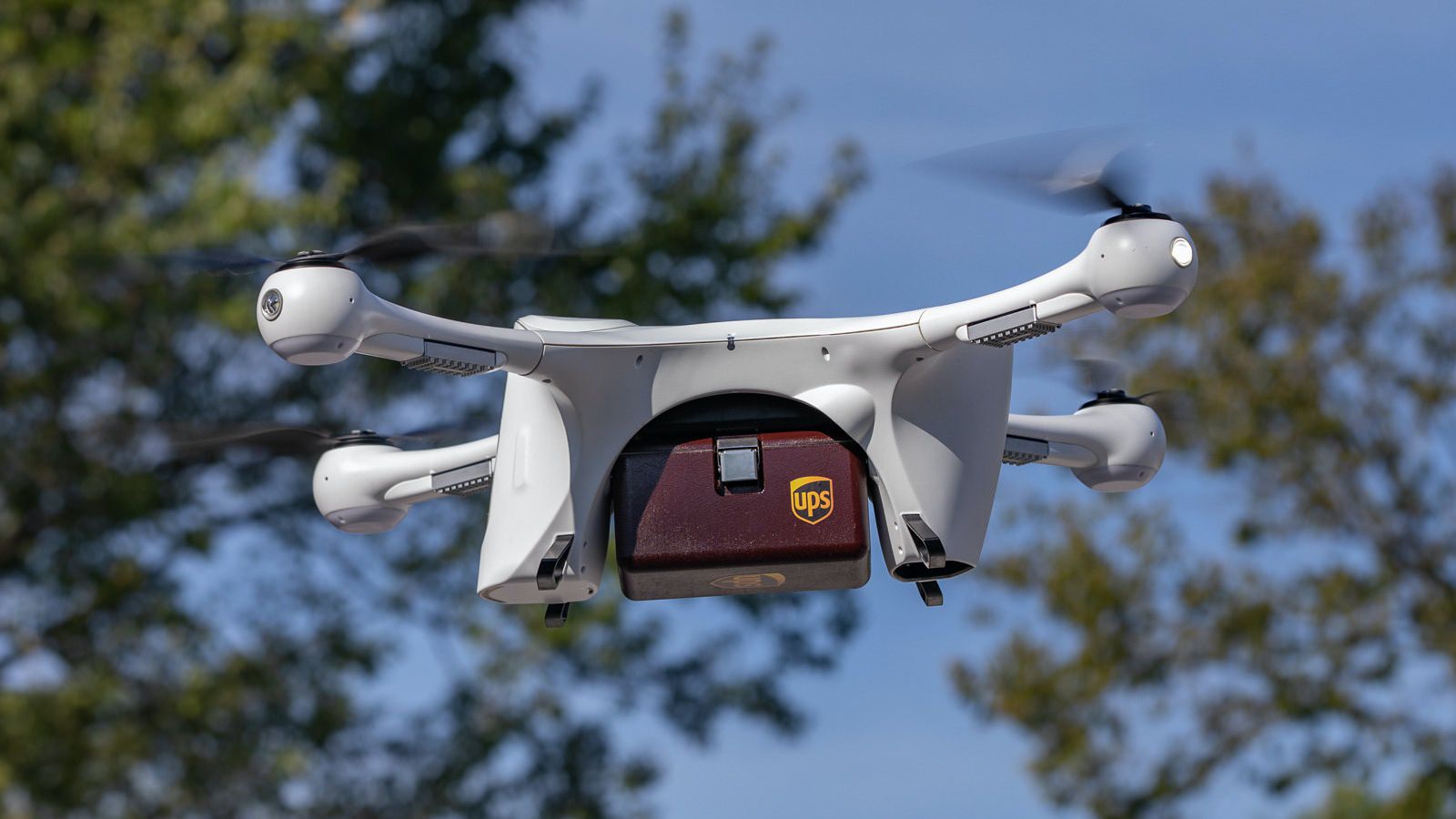
Is UPS abandoning its previously all-in, gung-ho enthusiasm for drones as the delivery vehicle of the future? Probably not, but recent comments about the tech by its CEO do seem to indicate a certain toning down of executive expectations of how fast UAVs will revolutionize the company’s business.
Under previous CEO David Abney, UPS moved fast and frequently to test drone delivery systems and start developing in-house capacities to fly the craft on regular missions, both near and far. In 2019, its UPS Flight Forward subsidiary even became the first company to obtain Federal Aviation Administration authorization to operate a drone delivery airline. From there followed several aerial milestones suggesting the company was determined to lead the global effort to relocate delivery vehicles from the roads into the skies.
Recent comments by current UPS CEO Carol Tomé, however, appear to indicate a slight slackening of the company’s sprint into the UAV future. In fact, given how far the craft have come in enterprise use – and as forerunners to exciting aerial applications like air taxis and other approaching services – Tomé’s remarks seemed to demote drone delivery performance with a virtual “meh.”
“You can’t fly them when it’s windy,” Tomé said Tuesday during an American Chamber of Commerce event, according to Bloomberg. “You can’t fly them when it’s rainy. There are lots of issues with drones.”
It certainly sounded like a corporate shade.
Because there was no further context provided – much less follow-up questioning of Tomé’s comments – it’s impossible to know whether she and other current UPS managers are seriously rethinking Abney’s previous, enthusiastic commitment to drone deliveries as the way of the future. If they were, it would represent a monumental pivot for the company and drone tech alike.
But there’s a large body of evidence suggesting the company may instead now be drawing on the lessons of its experience with UAVs – warts and all – as a manner of recalibrating rather than repudiating its use of the craft.
After all, Tomé took controls of the company in mid-2020, and has been in place as UPS Flight Forward continued to launch new initiatives in its evolving drone delivery operations.
That same year, as the effects of COVID-19 spread, the company announced it was beginning commercial drone delivery of medical supplies to The Villages retirement community in Florida. A few months later it started a similar service to hospitals in North Carolina, including the Wake Forest Baptist Health medical campus.
Last year the company said it planned to use Beta Technologies’ ALIA-250c cargo delivery drones to improve its network by carrying 1,400 lbs. of payload to multiple UPS facilities in 250-mile maximum flights. That was followed last August by UPS Flight Forward taking advantage of rule changes pertaining to COVID-19 vaccine cold chain requirements to start delivering those to certain destinations by drone.
With that activity continuing through the end of the year, it’s more than likely UPS remains as committed to drone deliveries in future operations as it’s been over the past half-decade – Tomé’s apparently dismissive remarks notwithstanding. Besides, UAVs do kind of suck in windy and rainy conditions, so she’s not wrong there.
FTC: We use income earning auto affiliate links. More.



Comments